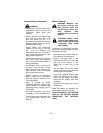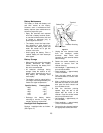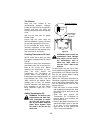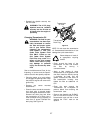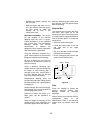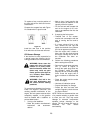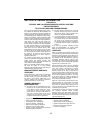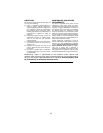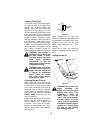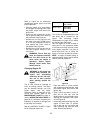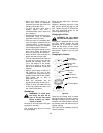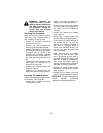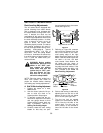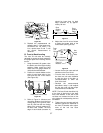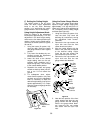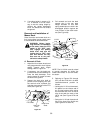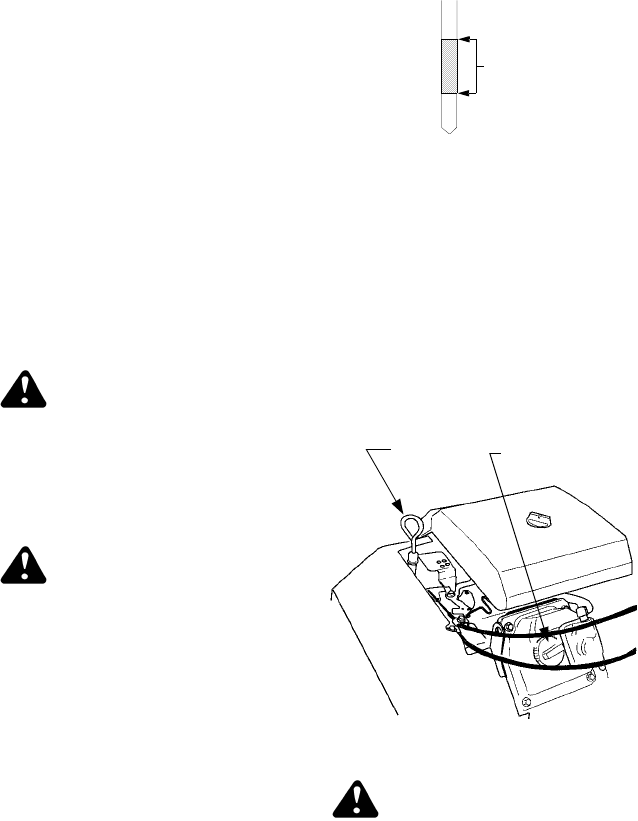
32
Cleaning The Engine
This tractor has an air-cooled engine.
Air must be able to circulate freely
around the engine through the
flywheel screen, through the cooling
shrouds and over the fins of the
cylinder head and cylinder block. Keep
these areas free of accumulated dirt
and debris or the engine will overheat;
possibly causing extensive engine
damage. Regularly clean the inside of
the side panels, dash intake screen
and grille to ensure adequate cooling.
If debris has accumulated inside the
cooling shrouds, the blower housing
and cooling shrouds should be
removed and the cooling fins cleaned.
WARNING: This machine is
designed to cool properly with
the side panels in place.
Operating without the panels
could cause premature
accumulation of dirt and
debris on the engine, resulting
in inadequate cooling.
WARNING: Keep the muffler
area clean. Before running the
engine, clean the muffler area
to remove all combustible
debris. Inspect the muffler
area often when mowing
during the Fall season.
Checking Engine Oil Level
Before each use, the oil level of the
engine crankcase should be checked
to see that it is filled to the correct
level. Close monitoring of the oil level
during the first 10 hours of operation
of the engine is especially important
and the oil level should be checked
EVERY HOUR during the first five
hours of operation.
Before checking the oil level, clean the
area around the oil level dipstick to
prevent debris from entering the
crankcase. See Figure 23. Always
keep the oil level between the “FULL”
and the “ADD” marks on the dipstick.
See Figure 22.
Figure 22
When checking the oil level, the
engine must be cold, the dipstick must
be withdrawn and wiped clean, then
inserted all the way into the tube
before being withdrawn for a true
reading.
Check the oil level only while the
engine is stopped and the tractor is
level.
Adding Engine Oil
Figure 23
WARNING: Never overfill the
engine crankcase. The
engine may overheat and/or
damage may result if the
crankcase is below the
“ADD” mark or over the
“FULL” mark on the dipstick.
For best results, fill to the
“FULL” mark on the dipstick
as opposed to adding a given
quantity of oil. Always check
the level on the dipstick
before adding more oil.
F
A
Operating
Range
Full
Add
Dipstick
Oil Fill Cap



